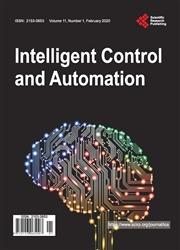An Electrothermal Model Based Adaptive Control of Resistance Spot Welding Process
引用次数: 1
Abstract
Resistance Spot Welding (RSW) is a process commonly used for joining a stack of two or three metal sheets at desired spots. The weld is accomplished by holding the metallic workpieces together by applying pressure through the tips of a pair of electrodes and then passing a strong electric current for a short duration. Inconsistent weld and insufficient nugget size are some of the common problems associated with RSW. To overcome these problems, a new adaptive control scheme is proposed in this paper. It is based on an electrothermal dynamical model of the RSW process, and utilizes the principle of adaptive one-step-ahead control. It is basically a tracking controller that adjusts the weld current continuously to make sure that the temperature of the workpieces or the weld nugget tracks a desired reference temperature profile. The proposed control scheme is expected to reduce energy consumption by 5% or more per weld, which can result in significant energy savings for any application requiring a high volume of spot welds. The design steps are discussed in details. Also, results of some simulation studies are presented.基于电热模型的电阻点焊过程自适应控制
电阻点焊(RSW)是一种通常用于在所需的点上连接两个或三个金属板的工艺。焊接是通过一对电极的尖端施加压力,然后在短时间内通过强电流,将金属工件固定在一起完成的。焊接不一致和熔核尺寸不足是RSW的常见问题。为了克服这些问题,本文提出了一种新的自适应控制方案。该方法基于RSW过程的电热动力学模型,采用自适应一步超前控制原理。它基本上是一个跟踪控制器,可以连续调整焊接电流,以确保工件或焊核的温度跟踪所需的参考温度曲线。所提出的控制方案有望将每个焊缝的能耗降低5%或更多,这对于任何需要大量点焊的应用都可以显著节省能源。详细讨论了设计步骤。并给出了一些仿真研究的结果。
本文章由计算机程序翻译,如有差异,请以英文原文为准。
求助全文
约1分钟内获得全文
求助全文

 求助内容:
求助内容: 应助结果提醒方式:
应助结果提醒方式:


